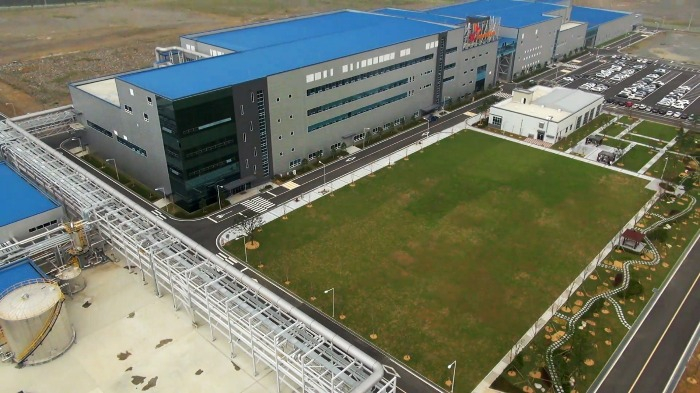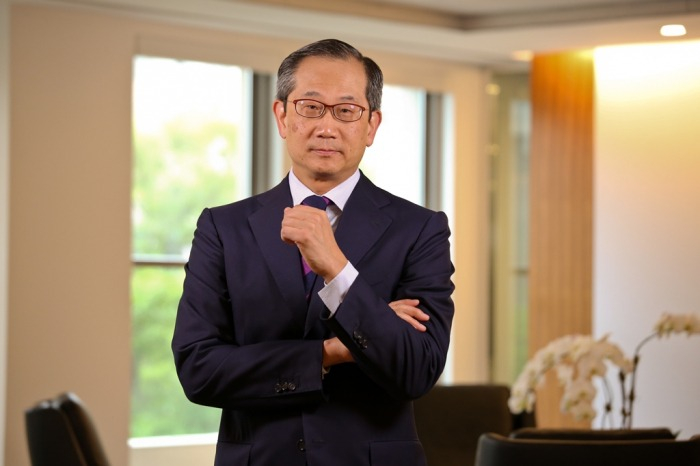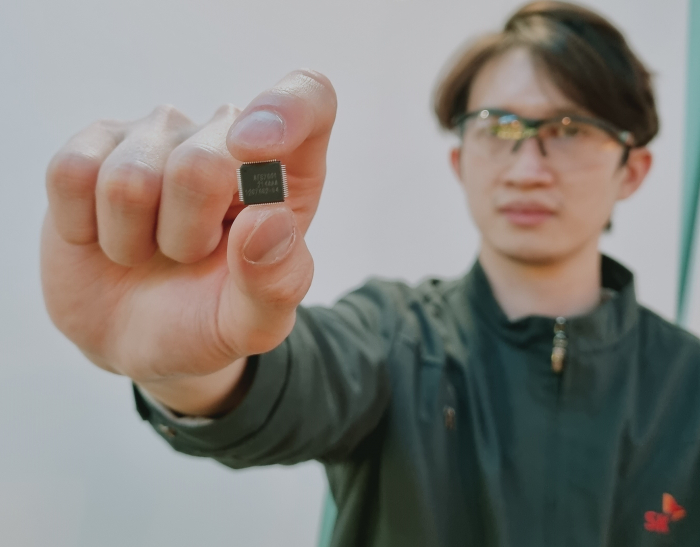SK taps Korean PE for $1.5 bn after Carlyle's Lee quit
Talks with Carlyle, one of the two remaining global negotiators, lost momentum after Kewsong Lee stepped down
By Aug 19, 2022 (Gmt+09:00)
LG Chem to sell water filter business to Glenwood PE for $692 million


KT&G eyes overseas M&A after rejecting activist fund's offer


Kyobo Life poised to buy Japan’s SBI Group-owned savings bank


StockX in merger talks with Naver’s online reseller Kream


Meritz backs half of ex-manager’s $210 mn hedge fund



SK On Co. has turned to domestic private equity firms to raise up to 2 trillion won ($1.5 billion) after talks with four big global funds have dried up amid a wide gap over its valuation, according to sources familiar with the matter.
SK signed a memorandum of understanding with a consortium led by Seoul-based EastBridge Partners on Thursday to attract as much as 2 trillion won in investment.
The domestic consortium stepped in after KKR & Co. and Singapore's GIC walked away from the negotiating table. Talks with The Carlyle Group, one of the two remaining negotiators, fizzled out after Kewsong Lee stepped down as CEO last week.
“SK had been in talks with Carlyle until Lee suddenly resigned,” one of the sources told Market Insight, the capital market news provider of The Korea Economic Daily.
"But their negotiations lost momentum after he quit."
Under the MOU, the EastBridge-led group will secure about a 10% stake in unlisted SK On. The deal put its enterprise value at about 20 trillion won, below its estimated 35 trillion won.
Two other Seoul-based PE houses -- Korea Investment Private Equity and Stella Investment – joined the domestic consortium.

SK, the world’s No. 5 battery maker for electric vehicles, was offering its shares to raise about 4 trillion won to finance facility expansion.
Of the total, it had planned to raise 3 trillion won from two overseas investors and another 1 trillion won from domestic funds under the same terms and conditions.
FOUR SHORTLISTED BIDDERS
For the fundraising, the SK Group arm had narrowed its bidders to BlackRock, Carlyle, KKR and GIC early this year.
When they made bids for SK On, investors painted a bright picture for the rechargeable battery industry thanks to the burgeoning EV market. Saudi’s sovereign wealth fund Public Investment Fund was among the preliminary bidders.
As stock markets languished amid a looming economic downturn, however, the hype around pre-IPO investing faded quickly. Rising interest rates raised their expected returns as well.
Sources had told The Korea Economic Daily that the shortlisted bidders' initial proposals were not as attractive as the company had expected, with their valuations far shy of SK's estimate.
To smooth the way for its fundraising, SK has accepted investors' proposal to sell preferred shares convertible into ordinary shares, instead of common shares which do not carry investor protection. Also, it lowered its valuation by about 40%.

DOOR LEFT OPEN TO GLOBAL FUNDS
But in case it fails to draw additional investor money, SK is understood to be preparing to secure money from its parent company SK Innovation Co. The battery supplier was spun off from the energy and chemical company last year.
As its fundraising has been delayed, SK On borrowed about 1 trillion won in short-term loans from leading Korean brokerage firms in May this year.
Last month, it secured an additional $2 billion in trade financing from Germany’s credit insurance company Euler Hermes, Korea Trade Insurance Corp. and Export-Import Bank of Korea.
However, the company is not considering going public in the near future. Its accumulated operating losses reached 1.4 trillion won over the past three years, despite sales nearly doubling annually during the period.
As a latecomer to the EV battery market, SK On plans to expand its production capacity over tenfold from the current 40 gigawatt-hours (GWh) to 500 GWh by 2030.
(Updated with details)
Write to Chae-Yeon Kim and Jun-Ho Cha at Why29@hankyung.com
Yeonhee Kim edited this article.
-
 Pension fundsCarlyle tops NPS' favorite PE managers as of end-2021
Pension fundsCarlyle tops NPS' favorite PE managers as of end-2021Aug 16, 2022 (Gmt+09:00)
3 Min read -
 Private equityCarlyle CEO Lee’s sudden exit puts the PE’s Korea strategy in spotlight
Private equityCarlyle CEO Lee’s sudden exit puts the PE’s Korea strategy in spotlightAug 08, 2022 (Gmt+09:00)
3 Min read -
 Behind the ScenesSK Group’s 'financial story' running out of steam?
Behind the ScenesSK Group’s 'financial story' running out of steam?Jun 14, 2022 (Gmt+09:00)
5 Min read -

-
 Private equitySK Group's PE-funded transformation in the spotlight
Private equitySK Group's PE-funded transformation in the spotlightMar 07, 2022 (Gmt+09:00)
5 Min read -
 Mergers & AcquisitionsSK On narrows bidders to BlackRock, Carlyle, KKR, GIC
Mergers & AcquisitionsSK On narrows bidders to BlackRock, Carlyle, KKR, GICFeb 24, 2022 (Gmt+09:00)
3 Min read -
 BatteriesKKR, Carlyle, TPG vying for $4 bn stake in SK's battery arm
BatteriesKKR, Carlyle, TPG vying for $4 bn stake in SK's battery armFeb 08, 2022 (Gmt+09:00)
2 Min read


